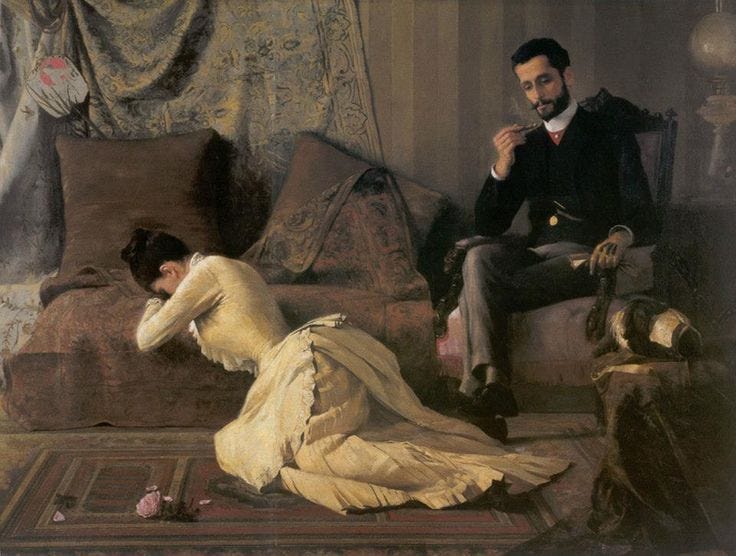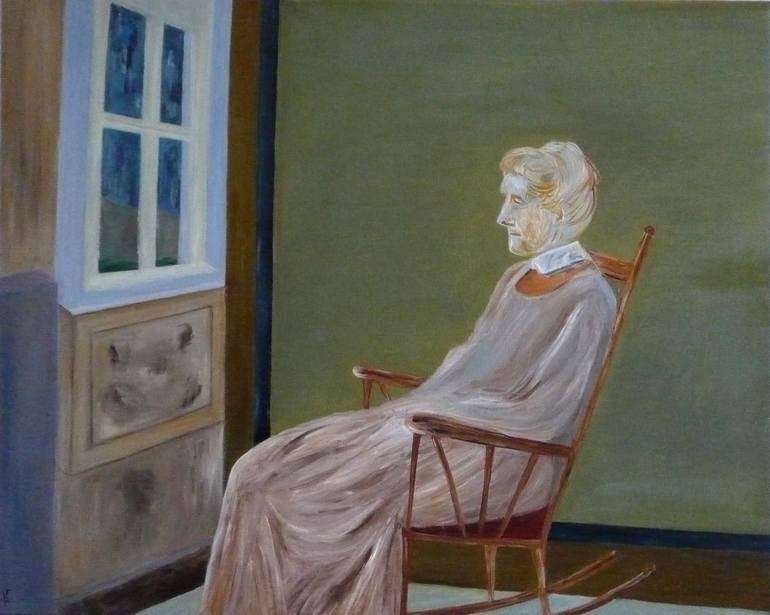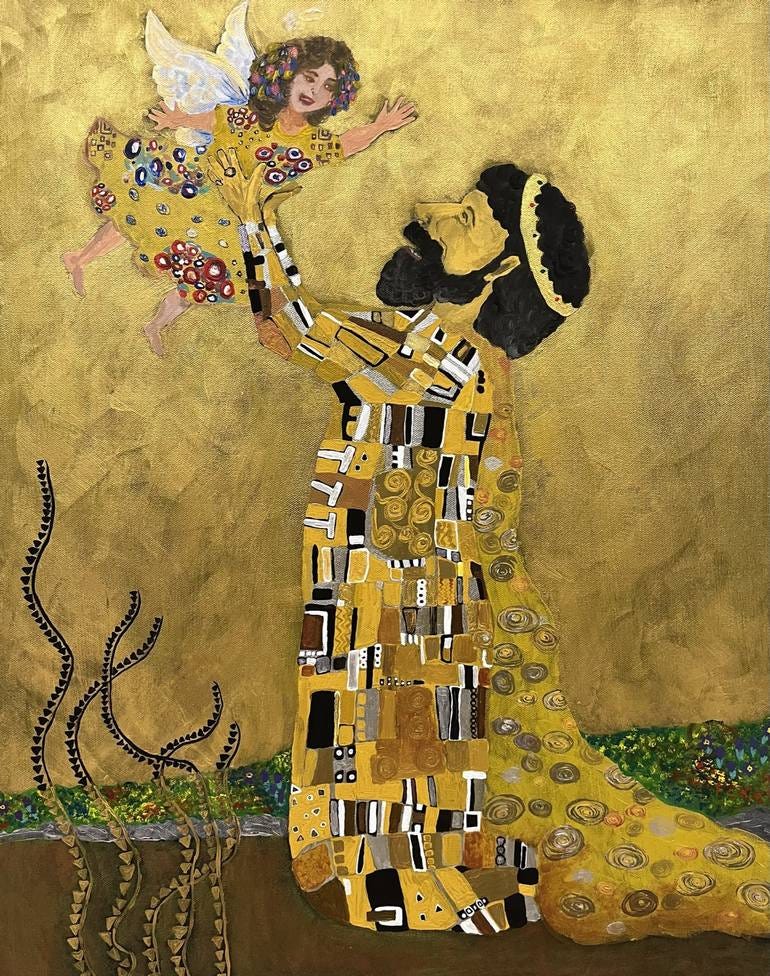I want to take a special moment to appreciate Nicole who shared her insight and experience in the piece below. Also shoutout to my friends—Jeremy, Jenna, , , and Kareem. Your support doesn’t go unnoticed, and I’m truly grateful ♥️
“Do you want kids?” she asked, her voice delicate yet searching. Though we had exchanged only a few conversations at the office and a few work socials, we now sat side by side on a secluded bench along the Embarcadero, gazing out over the water. The chilly wind tugged at our words, carrying them away, giving us the illusion of privacy—shielding us from the passing strangers but not from the quiet longing she held inside.
“Yes, absolutely.” I answered without hesitation.
“I want to start a family, but my partner doesn’t want kids,” she admitted, her voice trembling. I remembered her briefly mentioning her partner of five years—a software engineer at Google—during an earlier conversation about how we’d spent our weekends. She came across as kind, caring, and genuinely thoughtful—but the more we talked, the more I picked up on something else beneath it all: a deeply insecure, people-pleasing side that seemed to surface in her romantic life.
The light above dimmed, the air thickening, as if the heaviness of her sorrow had seeped into the sky itself. She pulled the sleeve of her shirt to her flushed cheeks, wiping away the quiet evidence of her unfulfilled desire.
I reached for her, one arm draped around her shoulders, the other pressing gently against the curve of her back, drawing her closer. She sunk into my chest, her trembling body curling inward like something small and fragile seeking a warm womb.
A muffled sniffle, then a hesitant, childlike whisper: “I can’t stop thinking about it. I am almost 35 and I don’t want to miss… Do you think he will change his mind?”
I had been here before, in this very conversation, and I knew better than to speak. Words like why don’t you just tell him or why are you scared to tell him had proven useless. She didn’t need my words, my solutions, my warnings or my inquiries. Deep down, she already knew—the consequence of drawing a hard boundary could prove disastrous or raising children with someone who wasn’t all in was a burden no love could carry. The truth was, I couldn’t claim to know her partner, their history, or his side of the story. She wasn’t looking for answers—only a space to share her pain.
“You know… you have every right to want a family,” I offered, my voice soft but certain. I didn’t expect an answer; I had sat in this silence before. But I had made it a quiet mission to remind women who I felt had been conditioned to shrink themselves that their wants, their dreams, their longing for love and belonging were no less worthy than any man’s.
“Maybe I don’t want kids.” She mumbled.
Her words immediately brought to mind a dear friend in her sixties who once shared her deepest regret—that she had never had children. She had longed for a family, but she had also clung to hope, believing that in time, her partner would want the same. Now, she wished she had fought for her own dreams instead of waiting for him to change. The hardest part, she admitted, wasn’t just the loss itself, but the lingering ache of self-betrayal—the quiet shame of thinking that love and sacrifice could make someone choose a life they never truly wanted.
Or another friend, who persuaded her partner to start a family, only to realize too late that he was willing to go along with her dream—as long as she carried an overwhelming majority of the household duties. He never fully stepped into fatherhood, never truly became a present and engaged parent. Over time, the burden of raising a family alone while sacrificing her own dreams wore her down, turning into resentment. She became someone she barely recognized—angry, bitter, alone. After years of being disconnected from her own truth she started to see a reflection she had spent her whole life trying to avoid: her mother.
Unspoken expectations are premeditated resentments. ~Neil Strauss
We sat in silence on that bench, watching the sun shimmer over the Bay, the breeze carrying the scent of salt. Then, a large cloud drifted overhead, slowly stealing away the warmth of the sunlight. My thoughts started to drift into a dreamscape—with a
She never saw the tears that blurred my vision—a quiet betrayal of my own longing for a family. In a single drop was a memory suspended inside a dream globe—a quiet vision of sitting beside a future daughter, reminding her never to shrink herself in love or in life. But reality forced me to confront my own struggles with love—the ache of naive hope, the slow stings of disappointment, and the helplessness of wanting something that felt increasingly beyond my reach, no matter how hard I fought.
There is no passion to be found playing small-in settling for a life that is less than the one you are capable of living ~Nelson Mendela
Understanding Women’s Experience
Growing up, I often wondered why my mother never truly seemed happy with her life. Her discontent stood in stark contrast to my father’s joyful and openly affectionate nature, which only seemed to intensify her resentment. And whenever her unhappiness was directed at me, I’d quietly think, Why doesn’t she just go after whatever it is that would make her happy?
I believe the answer to the question that has confounded me my entire life lies in the following excerpt from a text exchange with my lovely friend Nicole—a female founder based in Poland, whose intelligence is matched only by her thoughtfulness, self-awareness, and, above all, her courage in pursuing truth wherever it may lead.
Why do you feel women play small in relationships?
Love the question!! The answer is multifaceted. We've been for centuries trained that the way to get things is in indirect ways - that's why you see so much more codependent behaviors in women (comes also with talents - being attuned to ppl's needs, great at manipulation). Women couldn't go for what they wanted directly in the past - they relied on a man to provide these things because that's how the society was set up. So it's deeply ingrained in our instincts. Then there's a lot of judgement that comes when a woman goes for things directly - because it does require more empowered/assertive/aggressive behaviors - so you're called a bitch etc. So there's a strong historical instinct to go for things indirectly and strong penalties for going for things directly.
For me personally - I was always consciously ambitious but then when I look at my feelings, behaviors etc etc - so much of disempowerment!!! So there's a constant internal fight (not anymore though)Somehow acting small seems like a way to attract a man - they'll feel then useful, want to help etc etc so I think a lot of women use it as a flirtation technique...
So the most effective way for a woman to get things in life/have her needs met is to get it through a man. I think it's still the case in some way - although the roles are slowly switching (not good as well lol). Going for things directly is an uphill battle for a woman.
And then you're also judged all the time. And have to at the same time fill all the other standards - take care of your looks, be nurturing to man and your environment, take care of your family. So you suddenly have 10 jobs lol
So eg for me going for what I want finally/not playing small comes with the risks that I had to accept - that I'll be less attractive to men, may decrease my mating/family prospects, may risk never having a family, not taking care of my looks as much as other women who are solely focused on getting a man, being judged as masculine and not feminine enough, going directly against my family's judgement (so ultimately being unloved) etc etc
I have a lot of thoughts about it as it's a multilayer problem but hope it gives you some ideas:) Btw I do think also the opposite is becoming the problem - more and more of men are playing small (which is even more fatal for both genders!)
Imo it's the same unhealthy thing for both men and women - just different sides of the same coin of unhealthy sense of self. Men from these environments usually go more for direct narc behaviors, women go more for indirect narc behaviors (because if they go for direct ones - they're more quickly recognized as narcs and called out - making the whole strategy ineffective). Both coming from an unhealthy sense of self/feeling of lack, lack of empowerment.
It could work well if there were more models for men to embody their masculinity - so they can still have a place and be in their masculine energy when around more power-driven women. I know many men would enjoy & love that role - but there are no role models for it & it often comes with a societal judgment
Otherwise playing it big for a woman means total loneliness and lack of support :( it's not an easy choice
And for women more models of being power-driven but also maintaining feminine element - it's totally doable, just no role models so you need to be creative and don't give up
Bravehearts
I really appreciate Nicole’s wisdom and the way she shared her story. I loved when she said we don’t have to be big in love—maybe we just need to stop shrinking from it. That’s the heart of honest love.
What we need are more men willing to lead with courage—men who embody and model a new kind of masculinity. One that doesn’t shy away from supporting women’s needs, both at home and at work. Men who are emotionally aware, mature, and resilient enough to engage in uncomfortable, honest, and vulnerable conversations—with grace and curiosity, rather than shutting down or turning to anger. And men who don’t just talk about equality—but actually show up, roll up their sleeves, and contribute meaningfully to household life and their relationships with family and friends.
This process will demand a quiet kind of courage—the strength to stay present in discomfort, rather than retreat from it. At times, it will feel like a direct challenge to the ego—developing new skills through sacrifice, failure, suffering, and consistent, intentional effort. Stepping into service and active caretaking often brings no obvious external reward. There may be no applause or recognition for creating a mutually interdependent relationship or showing up fully as a devoted husband and father. But the true reward runs deeper: a stronger connection to yourself and a deeper, more meaningful bond with the people who love and care for you most.
The root of the word courage is cor – the Latin word for heart. In one of its earliest forms, the word courage meant “to speak one's mind by telling all one's heart. ~Brené Brown
A Father’s Hope
Lately, I find myself dreaming of parenthood—the quiet joy of nurturing, of guiding a child to creatively grow into their own unique self. One day, I hope they come across these writings and see them as a reflection of a life rooted in honesty and authenticity. I hope they feel inspired to forge their own path, even in the face of paralyzing fear. That even before they arrived, they would know my greatest hope was for them to grow up feeling empowered to never play small—in love or in life.
I imagine sitting on that same bench overlooking the Bay one day, beside a daughter, hearing her speak without a hint of hesitation: I know who I am and what I want—children, a family, a career that feeds my soul, and a partner who not only wants the same, but isn’t afraid to show up with kindness, grace, openness, and emotional vulnerability—especially when it’s uncomfortable. Someone who walks beside me—not just for a moment, a season, or a chapter, but for a lifetime. A partner equally devoted to building a family life grounded in love, mutual respect, and shared growth.
And where a son can speak his truth—with the same honesty, grace, and emotional maturity—when it’s his turn to sit on the other side of the conversation: I respect you for being honest and owning who you are and what you want from life and love. I really like you and I could tell you that let’s just enjoy getting to know each other but that would be disingenuous. I still feel like I need to be selfish and pursue my own personal and professional passions right now. The reality is, I don’t know if I want children or if I believe in marriage. And that uncertainty isn’t fair to you. Kids deserve parents who are all in and you deserve a wonderful partner who doesn’t hesitate when it comes to building a life with you and who wholeheartedly wants to co-create a life that honors your dreams.
Our deepest fear is not that we are inadequate. Our deepest fear is that we are powerful beyond measure. It is our light, not our darkness that most frightens us. We ask ourselves, 'Who am I to be brilliant, gorgeous, talented, fabulous?' Actually, who are you not to be? Your playing small does not serve the world. There is nothing enlightened about shrinking so that other people won't feel insecure around you. We are all meant to shine, as children do. It's not just in some of us; it's in everyone. And as we let our own light shine, we unconsciously give other people permission to do the same. As we are liberated from our own fear, our presence automatically liberates others. ~Marianne Williamson, A Return to Love: Reflections on the Principles of "A Course in Miracles"







I agree with Nicole! But, I think rather than becoming less attractive to men (by choosing not to play small) we become attractive to less men. Which, quite honestly, is a good thing. We may not appeal to the broad masses, but we are way more likely to call in the right kind of partner for us and the life we desire for ourselves 🙂
Thank you for sharing this, I particularly enjoyed how men, women, and childhood experiences are interwoven and influence how we desire, ask, and expect.